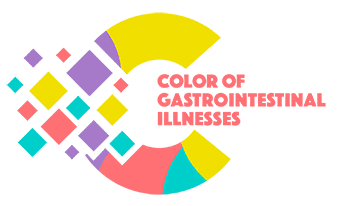Cancer is a disease in which abnormal cells divide uncontrollably and destroy body tissue. There are more than 100 types of cancer and in 2020, there were an estimated 1.9 million new diagnosed cancer cases. When it comes to naming cancer, the name usually generates from the body source it is originating from, for example, brain cancer starts in the brain. Many of the most diagnosed cancers have a ten-year survival rate of 50% or more. One common cancer is breast, and when caught early, 90% survivable.
Another survivable cancer is kidney cancer. This is the type of cancer I was diagnosed with in July 2020. Kidney cancer originates in your kidneys. Your kidneys are located behind your abdominal organs, one on each side of your spine, the size of a bean and is as big as your fist. Renal cell carcinoma is the most common kidney cancer for adults, but other less common forms can occur. Wilm’s tumor is the type of kidney cancer that occurs in young children. Kidney cancer is often discovered early when the tumors are small and confined to just the kidney.
I was diagnosed with a rare type of cancer that is so new that there is not enough data to show why and how this happens. Clear cell papillary renal cell carcinoma (CCPRCC) is when the two cancer types (Clear cell papillary & Renal cell carcinoma) mixes together to form one tumor. Case studies are currently underway to study this type of cancer more. I was sent to NIH to be apart of this study. So far it shows that a higher number of females (45% vs 32%) and a higher number of African Americans (19% vs 3%) have this type of cancer.
Symptoms of this type of cancer varies and is not all inclusive to just one individual. One of the main symptoms is blood in your urine. Sometimes this blood is visible and sometimes it is not and will need to be discovered under a microscope. For me, my urine was pink, which was concerning but my doctors kept diagnosing me with urinary tract infections. Other symptoms include pain in your lower back, on either the left or right side. Loss of appetite, unexplained weight loss, fever, and tiredness. If you have any of these symptoms that do not go away after treatment, please continue to follow up with your physician for further testing.
Diagnosing and treating kidney cancer is the key to survival for cancer patients. Radiographic imaging such as CT scan, MRI, X-Ray, and ultrasound are a few ways to diagnosis kidney cancer. Another way to diagnosis this type of cancer is through a kidney biopsy. A biopsy is where a hollow needle is inserted into the suspected kidney and cells removed to look closer under a microscope. For my case, I received a CT scan, MRI, and a biopsy to confirm the results.
Once diagnosed with kidney cancer, a type of treatment will be determined. Surgery has been known to be the best way of removing the cancer in its entirety. Removing part (partial nephrectomy) or removing the entire kidney (radical nephrectomy) will be a decision you and your physician will make together. Non-surgical treatments include cryoablation (freezing of the cancer cells) and radiofrequency ablation (burning of the cancer cells). Both treatments use a hollow needle inserted into the skin to the kidney to either freeze the tumor or burn the tumor to break up the cancer cells. All forms of treatments come with risk so an in-depth conversation with your physician is crucial in making the correct decision.
In September 2020, during the height of the pandemic, I underwent Robotic Assisted surgery to remove half of my kidney, known as a partial nephrectomy. This surgery removed my tumor along with normal tissue around my tumor to ensure that the cancer has been removed. I was then sent into immediate remission from the cancer but it’s not over. For the next 5 years, there will be scans, ultrasounds and doctor appointments to ensure the cancer has not metastasized (spread to another body part) or returned in the same area. I just celebrated one-year of my cancer being in remission but was also terrified to hear that the tumor may have returned. I must do another scan soon to determine whether I will need additional surgery but for now I am celebrating this victory.
Constant love, and support from close family and friends are great ways to deal with a diagnosis of cancer. Researching and learning all you can helps keep you knowledgeable and up to date on the latest discoveries and treatments. Trial studies helps researchers discover the best ways to treat cancer and emotional support is available and if needed, easy to obtain.

